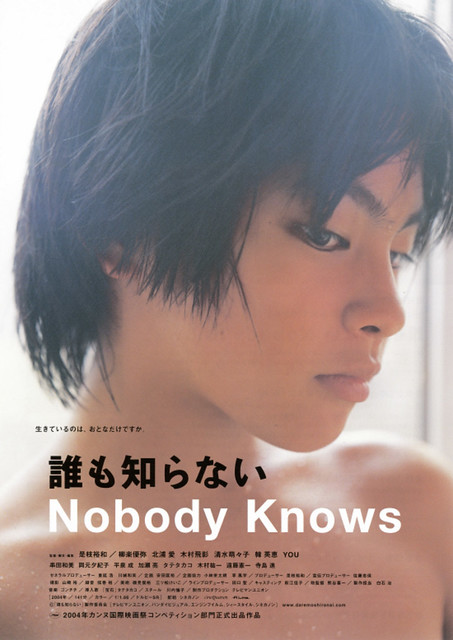
The Maridon Museum will show 2004's Nobody Knows (誰も知らない) on November 5 as the fourth and final installment in this fall's Japanese film series. A brief introduction, from a 2005 Roger Ebert review:
As "Nobody Knows" opens, we watch a mother and two kids moving into a new apartment. They wrestle some heavy suitcases up the stairs. When the movers have left, they open the suitcases and release two younger children, who are a secret from the landlord. "Remember the new rules," the mother says. "No going outside. Not even on the veranda -- except for Kyoko, to do the laundry."The movie starts at 6:00 pm, runs 141 minutes, and is presented by Dr. Yukako Ishimaru of Slippery Rock University. The movies in the series are free and open to the public, though reservations are required and can be made by calling 724-282-0123.
The Maridon, an Asian art museum, is located at 322 North McKean St. in downtown Butler (map), roughly 40 miles north of Pittsburgh.











